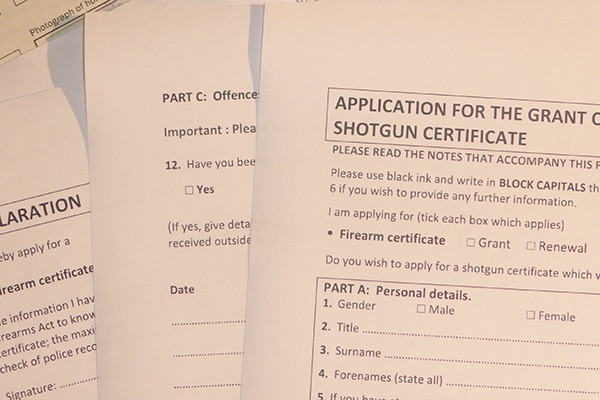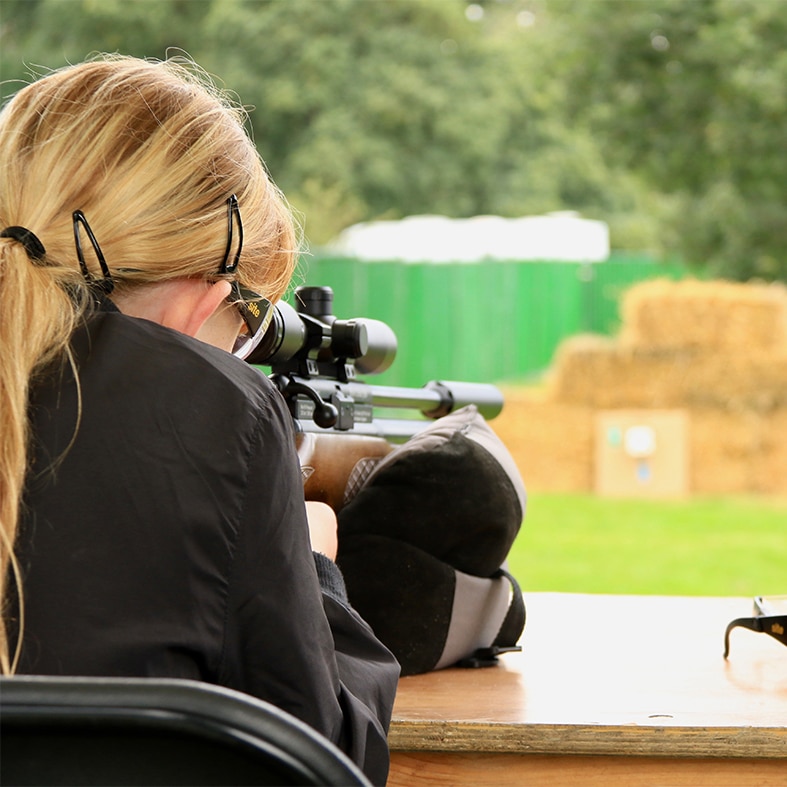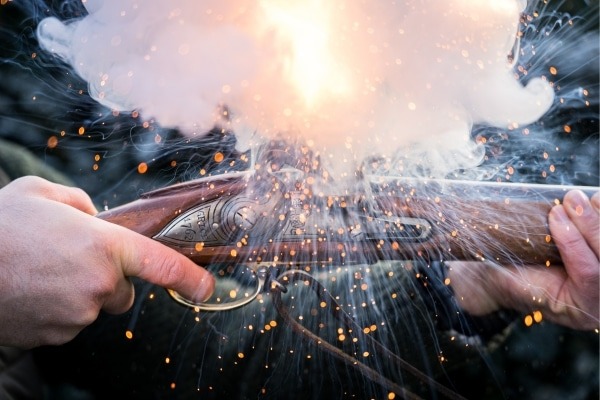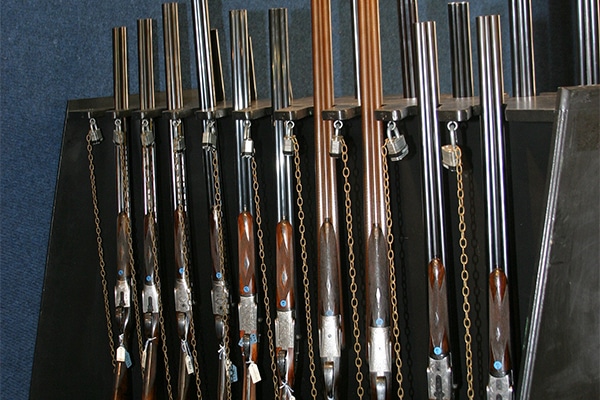
Certificate renewal flow chart
If your firearms certificate is due for renewal we’ve made it as easy as possible for you with a simple, easy to follow flow chart
Get information on the legal shooting season for mammals and birds in the UK.
Learn about our current conservation projects and how you can get involved.
Comprehensive information and advice from our specialist firearms team.
Everything you need to know about shotgun, rifle and airgun ammunition.
Find our up-to-date information, advice and links to government resources.
Everything you need to know on firearms law and licensing.
All the latest news and advice on general licences and how they affect you.


Firearms Young people Young people and air weapons
[Referencing the Firearms Act 1968-1997/Anti-social Behaviour Act 2003/Violent Crime Reduction Act 2006/Crime & Security Act 2010, Policing and Crime Act 2017]
From 10 February 2011, the Crime and Security Act 2010 made it an offence for a person in possession of an airgun to fail to take “reasonable precautions” to prevent someone under the age of 18 from gaining unauthorised access to it.
The storage of airguns must be reasonable ‘in all of the circumstances’, so owners must take appropriate steps to prevent young people gaining unauthorised access to their airguns.
‘Reasonable precautions’ will depend on the particular circumstances in each individual case. They could be a locked cupboard or a lock or locking device by which an air weapon can be attached to the fabric of a building, or to a fixed feature, or a security cord, lockable chain or similar device capable of passing through a point of anchorage within the building.
Where children are very young, it might be sufficient simply to store any air weapons up high and out of their reach. Trigger guard locks do not satisfy the requirements, as they do not prevent the young person from having the airgun with them, even though it cannot be fired.
The provisions of section 58(2) of the 1968 Act mean that the offence does not apply to an antique air weapon held as a ‘curiosity or ornament’. Nevertheless, be sensible how you look after your antiques or pellets that are for your modern airguns.
The possession and use of airguns by young people in the following specific circumstances is still permitted:
May not buy, hire, borrow or receive an airgun or ammunition for an airgun as a gift. Parents wishing to buy airguns for persons under 14 years old must never allow them to be in possession of the airgun or ammunition for it unsupervised, even when it is not in use.
Under these circumstances the young person can use the airgun under the supervision of someone of or over 21 years of age, on private premises with appropriate permission.
If a pellet goes outside these premises onto someone else’s property both the youngster and the adult supervisor commit an offence.
In this age group a person may not buy or hire an airgun or ammunition or receive them as a gift, however you may borrow one from a person over 18 years of age and use it on private property where you have the occupier’s consent, without supervision.
Anyone selling an airgun or ammunition (including pellets, darts etc) to a person under 18 years of age commits an offence.
A person within this age group may not carry an airgun in a public place at any time unless supervised by a person of or over 21 years, and only when you have a good reason for doing so.
A public place is anywhere where the public are allowed to go even though they may have to pay. Roads, streets, footpaths, canal towpaths, public parks and play areas are all examples of public places.
ALWAYS OBTAIN PERMISSION BEFORE ENTERING PRIVATE LAND/PREMISES
Firing pellets beyond the boundaries of premises
It is an offence for anyone to fire an air pellet beyond the premises where they have permission to shoot.
When young persons aged 14 and under are being supervised by an adult aged 21 or over, both the young person and supervising adult commit the offence.
It is a defence for the user and/or supervising adult to show that the occupier had consented to the firing of the missile (whether specifically or by way of general consent) over the premises the missile was fired into or across.
Note: fully automatic and semi-automatic airsoft guns that are over 1.3 Joules are prohibited weapons.
Additionally, the guns must be designed only to fire a small plastic missile ie. a missile that – (a) is made wholly or partly from plastics, (b) is spherical, and (c) does not exceed eight millimetres in diameter.
In Scotland due to the Air Weapons and Licensing (Scotland) Act 2015, any airsoft gun exceeding the muzzle energies stated above will require an air weapons certificate in order to possess such guns. Airsoft guns that fall under the energy thresholds above remain subject to existing imitation firearm laws.
See BASC’s Air Rifle Code of Practice here.
Got a question? Email us on firearms@basc.org.uk or call 01244 573 010.
© BASC July 2023

If your firearms certificate is due for renewal we’ve made it as easy as possible for you with a simple, easy to follow flow chart

Providing you with the information you need on explosives, including storage and best practice in the use of black powder.

As the holder of a firearm or shotgun certificate, you are required to comply with certain conditions on your certificate relating to security.
Sign up to our weekly newsletter and get all the latest updates straight to your inbox.
© 2023 British Association for Shooting and Conservation. Registered Office: Marford Mill, Rossett, Wrexham, LL12 0HL – Registered Society No: 28488R. BASC is a trading name of the British Association for Shooting and Conservation Limited which is authorised and regulated by the Financial Conduct Authority (FCA) under firm reference number 311937.
If you have any questions or complaints about your BASC membership insurance cover, please email us. More information about resolving complaints can be found on the FCA website or on the EU ODR platform.
This website uses cookies so that we can provide you with the best user experience possible. Cookie information is stored in your browser and performs functions such as recognising you when you return to our website and helping our team to understand which sections of the website you find most interesting and useful.
Strictly Necessary Cookie should be enabled at all times so that we can save your preferences for cookie settings.
If you disable this cookie, we will not be able to save your preferences. This means that every time you visit this website you will need to enable or disable cookies again.
This website uses Google Analytics to collect anonymous information such as the number of visitors to the site, and the most popular pages.
Keeping this cookie enabled helps us to improve our website.
Please enable Strictly Necessary Cookies first so that we can save your preferences!
More information about our Cookie Policy